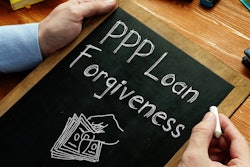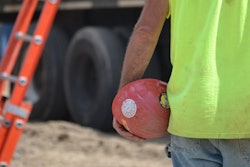
The Independent Community Bankers of America (ICBA) called on the Treasury Department and Small Business Administration to make the Paycheck Protection Program loan-forgiveness process less complex and onerous for borrowers and lenders. In a letter to the agencies, ICBA said an unnecessarily complex forgiveness process compromises the PPP's potential to facilitate a strong economic and jobs recovery. Lenders with less than $50 billion account for more than 65% of approved loans and more than 63% of the approved dollar amount through two rounds of the PPP.
"Borrowers should not have to hire accountants at expensive fees to assist with loan forgiveness," ICBA President and CEO Rebeca Romero Rainey wrote. "What’s more, borrowers whose first language is not English are struggling with the complex forgiveness forms and procedures and would greatly benefit from simplification."
ICBA called for:
- A shorter and simpler application form akin to the IRS Form 1040EZ.
- An online PPP loan-forgiveness calculator for borrowers and lenders.
- A forgiveness presumption of compliance for borrower-certified loans of $1 million or less.
- SBA to purchase residual PPP loans at par to support additional lending.
- Preserving the tax deduction for business expenses for PPP borrowers.
ICBA will continue working with policymakers to assist community banks in helping their local communities recover economically from the COVID-19 pandemic.
About ICBA
The Independent Community Bankers of America creates and promotes an environment where community banks flourish. With more than 50,000 locations nationwide, community banks constitute 99% of all banks, employ nearly 750,000 Americans and are the only physical banking presence in one in three U.S. counties. Holding more than $5 trillion in assets, nearly $4 trillion in deposits, and more than $3.4 trillion in loans to consumers, small businesses and the agricultural community, community banks channel local deposits into the Main Streets and neighborhoods they serve, spurring job creation, fostering innovation and fueling their customers’ dreams in communities throughout America. For more information, visit ICBA’s website at www.icba.org.

















